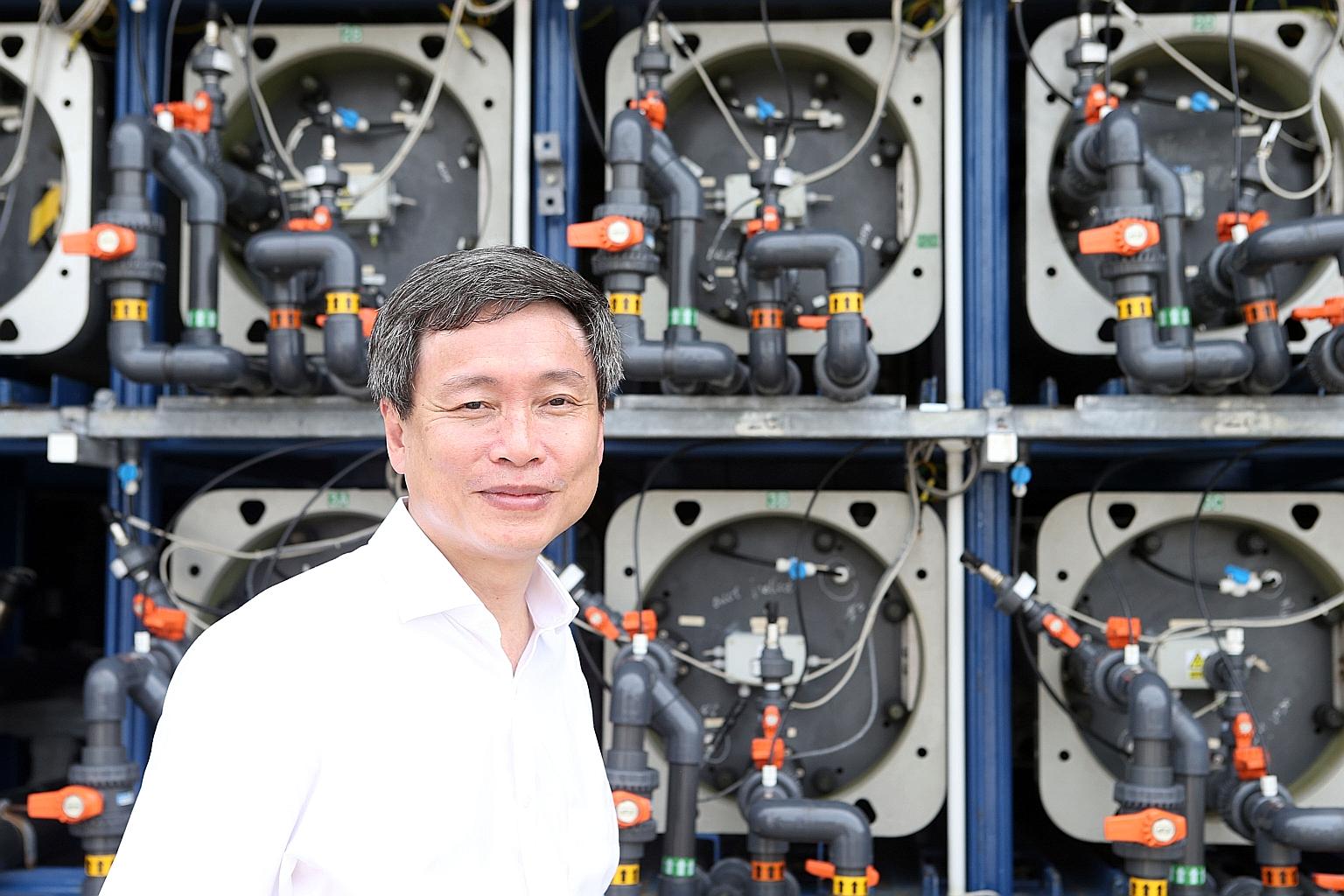PUB seeks to cut energy needed for desalination
Electro-deionisation tech used to treat sea water in new process
Sign up now: Get ST's newsletters delivered to your inbox

PUB's assistant chief executive Harry Seah hopes to reduce the rate of energy consumption of desalination at the Tuas demonstration plant to 1.8kwh per cubic m of sea water by next year, down from 2.4kwh per cubic m.
PHOTO: LIANHE ZAOBAO
To meet Singapore's water needs and reduce the energy costs of treating sea water, national water agency PUB and its research partner Evoqua Water have announced a new process that can potentially reduce the energy consumption of sea-water desalination by half.
Currently, up to 30 per cent of Singapore's water needs is desalinated by reverse osmosis, a process which pushes sea water through membranes that filter out dissolved salts and minerals.
This form of water treatment, according to PUB, uses about 3.5 kilowatt hours (kwh) to produce 1 cubic m of desalinated water.
However, Evoqua Water has developed new desalination modules which use electro-deionisation (EDI) technology. This uses electric currents to remove dissolved salts and minerals from sea water.
These EDI models have been used at a demonstration plant in Tuas since March and are able to treat 3,800 cubic m of sea water per day.
The rate of energy consumption of this plant is 2.4kwh per cubic m of water treated, according to PUB's assistant chief executive Harry Seah.
In 2009, PUB and Evoqua Water had shown - using proof-of-concept EDI models - that they could achieve an energy consumption rate of 1.65kwh per cubic m of sea water.
Hence, Mr Seah added that any new desalination plant would also use EDI technology, and he hopes to bring down the rate of energy consumption to 1.8kwh per cubic m of sea water by next year as operations are being scaled up.
PUB said it aims to scale up its operations at the Tuas demonstration plant to 10,000 cubic m of sea water per day by next year.
Energy consumption rates aside, Dr Qiao Xiangyi, Evoqua's research and development manager, said the production costs of the EDI technology have been reduced to a fraction of its original cost - from half a million dollars to about $40,000.


